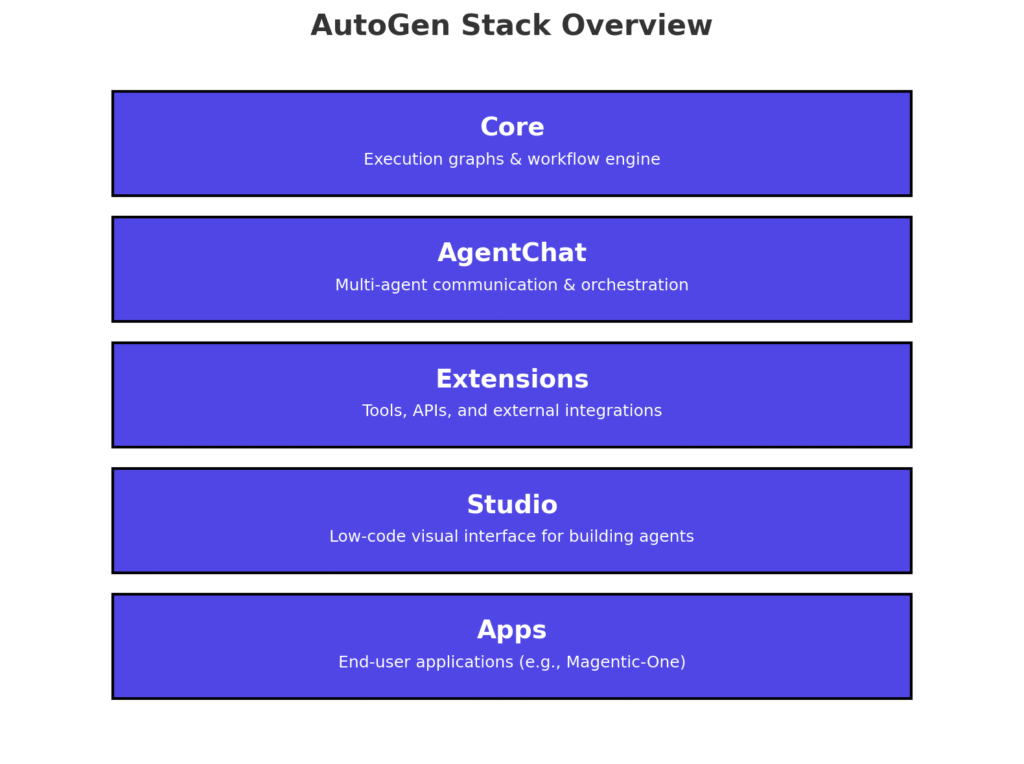AI is no longer just about "one big model".
The real magic happens when multiple AI agents collaborate to solve problems just like humans do in teams.
That's exactly where AutoGen steps in.
What is AutoGen?
AutoGen is an open-source framework from Microsoft that makes it easier to build multi-agent AI systems. Instead of one model trying to do everything, AutoGen lets you design specialized agents, each with its own role, tools, and knowledge that can talk, collaborate, and act together.
Think of it as an operating system for AI agents.
The AutoGen Stack (Simple View)
AutoGen is modular, with different layers:
- Core → Manages execution graphs and workflows
- AgentChat → Lets agents "converse" with each other and coordinate
- Extensions → Add tools, APIs, or external systems
- Studio → A low-code interface for prototyping agents visually
- Apps → Ready-to-use agentic applications (like Magentic-One)

This layered approach makes it flexible whether you're a researcher, developer, or automation enthusiast.
Versions & Forks
AutoGen has evolved quickly:
- Official Microsoft versions → v0.4, v0.5, and now v0.6
- Community fork (AG2) → Continues from v0.2, with its own roadmap
So, depending on your use case, you can pick the official track or the community-driven one.
Why It Matters?
In enterprise automation, we've always tried to make bots more "autonomous."
AutoGen is a leap forward. It's not about rigid workflows anymore, but about agents reasoning, collaborating, and adapting.
Some practical examples:
- A Research Agent + a Writer Agent co-creating reports
- A Data Agent fetching insights + an Email Agent summarizing results for stakeholders
- A Planner Agent delegating subtasks to multiple specialized agents
How to Get Started with Autogen?
Below are the steps:
- Install with pip:
pip install autogenstudio - Launch Studio:
autogenstudio ui --port 8080 - Start with a two-agent chat → see how they collaborate to solve a simple task
- Scale up to group chats or nested workflows
Final Thoughts
AutoGen is not just another AI library; it's the foundation for Agentic AI systems.
If you've worked with RPA or APA, think of AutoGen as the next evolution: where processes are no longer "scripted", but discussed, reasoned, and decided by AI agents.
We're entering an era where AI won’t just answer questions, it will coordinate solutions.

